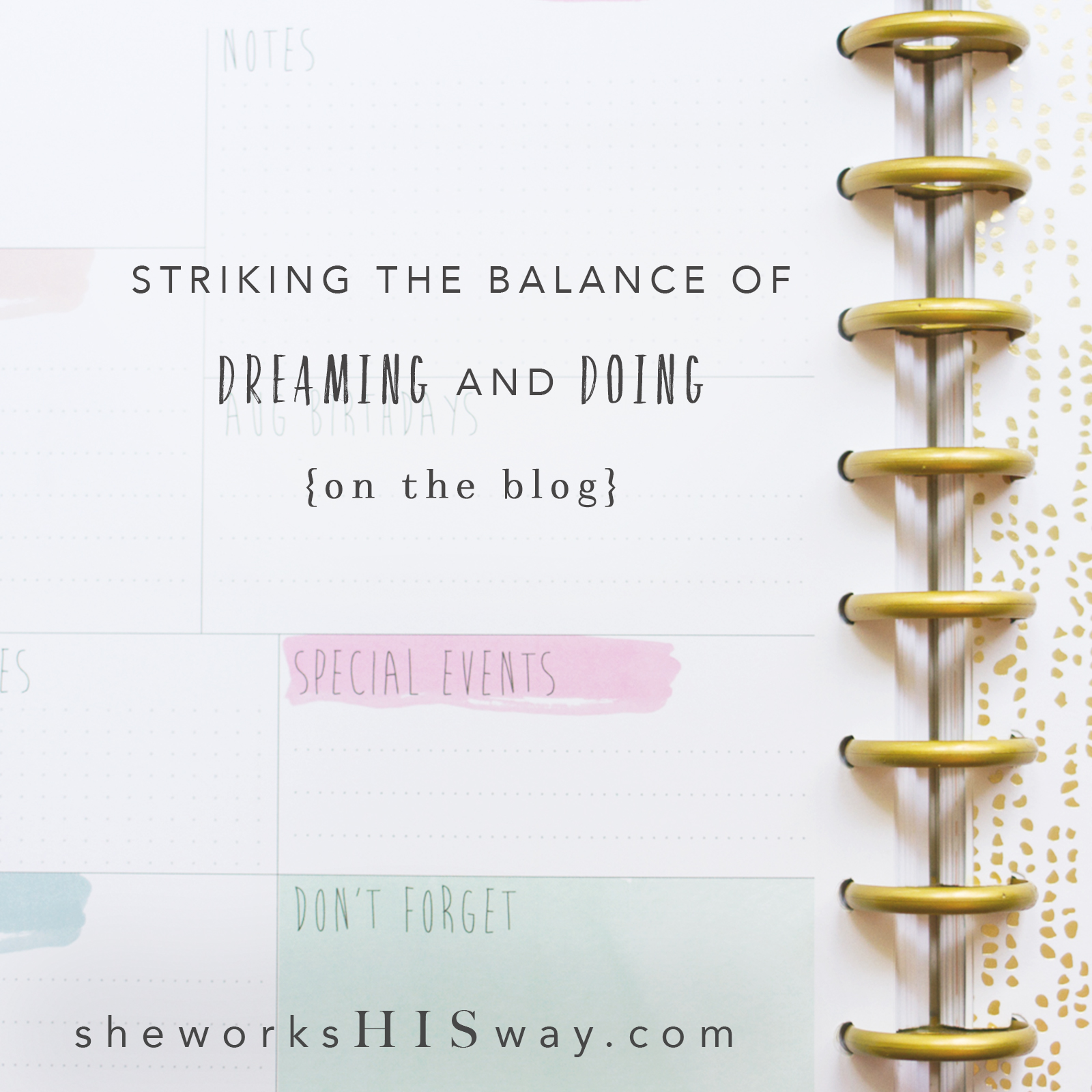My work puts me in contact with lots of entrepreneurs. Over the years, I’ve discovered very few have been able to strike a balance between learning and implementation. Of course, knowledge and vision is an important piece of entrepreneurship, but so is the willingness to try, even if it means failing a few times before you land on your feet.
Let’s talk about what happens if we tend to lean to either extreme of dreaming or doing…
The Over-Dreamer
These entrepreneurs might as well call themselves professional students, as they spend their workdays reading, listening to podcasts, and having lots of ideas and opinions… yet they never really do anything.
This person can quote leaders in their field with ease, always seems to have an opinion on what others are doing, and is never short on ideas on how everyone else should implement. Yet, they spend so much time learning and researching that they never actually get around to doing anything.
These entrepreneurs are rarely in situations where they don’t “know” the answer. Yet because their brain and their resume don’t add up, the opportunities don’t come. And if you never move forward, you will get lapped, even by the runner with the slowest pace.
Here’s the dangerous part the longer you stay stuck in this cycle: While applied knowledge typically develops into wisdom, knowledge unapplied typically develops into entitlement.
They become so “smart” that they actually forget that the achievements they’ve been reading and researching are not their own. They become resentful that their knowledge hasn’t elevated them to a level of success that matches what they know. They believe their knowledge should allow them to bypass certain steps and requirements…and they are insulted to think they should have to do the same steps as a “beginner.”
The Over-Doer
This person jumps in with both feet. They don’t bother to look at the directions. They don’t read books from others who have gone before them on a similar path. They don’t seek out mentors. They claim they have so much work to do that they don’t have time to read or listen to podcasts; those are luxury to-do list items for another day, in their opinion.
These stories typically end one of three ways:
Scenario 1: They get bored.
Even if their new venture starts out with some momentum, the same tasks day-in and day-out will eventually become routine, and then, they’ll become mundane. If we don’t stay challenged and continue growing, we are destined for boredom.
Scenario 2: They get boring.
If you don’t change and grow, your customers/clients will outgrow you. They don’t want you to teach them the same thing over and over again. They want you to continue teaching them new things. If you always have the same message, same product, or same routine, you will get boring, and your customers/clients will move on to the next exciting thing.
Scenario 3: They burnout and quit.
You can’t pour from an empty cup. So even if you never get bored with your routine tasks, you will eventually dry up if you don’t run to resources that will fulfill you. Don’t run the risk to see how long you can go before you burn out.
What Happens When You Dream and Do
This is the “not-so-secret” sauce, people. The top-performers in every industry do both. They learn, and they implement. They dream, and they do.
I’ve heard people suggest reading a chapter a day, a book a month, engaging in 15-30 minutes of a podcast or an audiobook a day. Personally, I disagree with putting a quantity to it.
What I’ve been doing for years is engaging in personal development daily…until I find a nugget I need to implement.
Some days, I read for an hour. Other days, I read a paragraph.
But I never run the risk of over-dreaming and battling entitlement, or over-doing and battling burnout.
Bottom line: Find the quantity that works for you. But make sure your daily plan includes both dreaming and doing.

